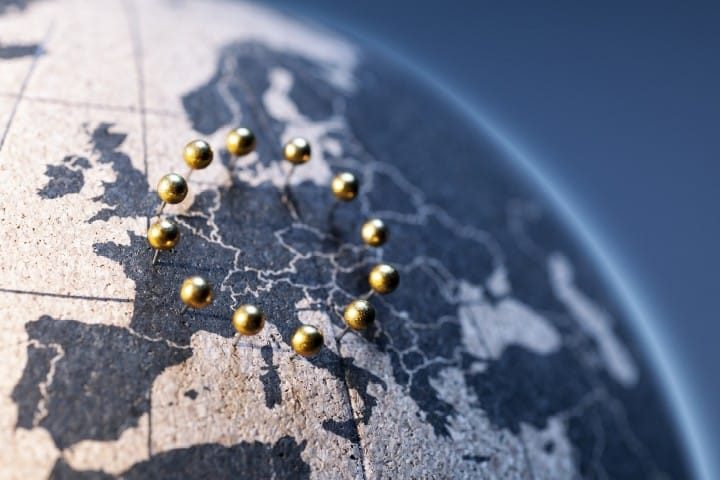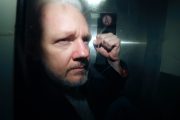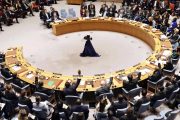
Several world leaders have denounced Big Tech companies over their mutual decision to ban U.S. President Donald Trump from their platforms. Trump has been banned from Twitter, Facebook, Instagram, Pinterest, Snapchat, Twitch, and Reddit over a perceived incitement of violence in connection with protests at the Capitol on January 6.
Twitter suspended the president permanently for allegedly running afoul of its “Glorification of Violence Policy,” despite the fact that Trump repeatedly called for for peace on the platform while the chaos was ongoing.
Even left-wing world leaders questioned the tech sector’s decision to remove the president from their platforms.
In Germany, Chancellor Angela Merkel criticized Twitter’s decision as “problematic,” and an infringement of the “fundamental right of free speech.”
“This fundamental right can be intervened in, but according to the law and within the framework defined by legislators — not according to a decision by the management of social media platforms,” said Merkel’s spokesperson, Steffen Siebert, on Monday.
“Seen from this angle, the chancellor considers it problematic that the accounts of of the US president have now been permanently blocked,” Siebert said.
German member of the European Parliament Manfred Weber, the leader of the center-right European People’s Party, also denounced the American tech companies, saying, “We cannot leave it to American Big Tech to decide how we can or cannot discuss online. Today’s mechanisms destroy the compromise searching and consensus building that are crucial in free and democratic societies. We need a stricter regulatory approach.”
Other European leaders were quick to denounce the knee-jerk response from American Big Tech. In France, Clement Beaune, the junior minister for European Union affairs, was “shocked” that a private company was allowed to make such a decision. Beaune and other leaders called for regulation of the power of the tech giants.
“This should be decided by citizens, not a CEO,” Beaune told Bloomberg TV. “There needs to be public regulation of big online platforms.”
Fellow French politician Bruno Le Maire, the French Finance Minister, echoed Beune’s calls for regulation. “The regulation of digital giants cannot be done by the digital oligarchy itself,” Le Maire stated, adding that big tech itself was “one of the threats” to democracy.
The European leaders are right to call out Big Tech’s censorship of Trump but, perhaps, for the wrong reasons. They see a Big Tech oligarchy making these decisions, which is true enough. But the answer to that oligarchy isn’t more government regulation — it’s freedom of speech, pure and simple.
The leader of Norway’s Labor Party, Jonas Gahr Støre, claimed that such censorship was a threat to political freedom around the world.
“This is a line where freedom of expression is also at stake,” Støre said. “If Twitter starts with this sort of thing, it means that they have to go around the world and look at other people, completely astray, and shut them out.”
Acting Australian Prime Minister Michael McCormick has called the blanket ban on Trump an “act of censorship.”
“There’s been a lot of people who have said and done a lot of things on Twitter previously that haven’t received that sort of condemnation or indeed censorship. I’m not one who believes in that sort of censorship,” McCormick said.
In Russia, opposition leader and dissident Alexey Navalny called out the hypocrisy of Twitter in particular by writing, “Don’t tell me he was banned for violating Twitter rules. I get death threats here every day for many years, and Twitter doesn’t ban anyone (not that I ask for it).”
Navalny later called Twitter to account for its possible ties to socialist/communist governments – such as the one being pressed for in America by many Democrats. “Of course, Twitter is a private company, but we have seen many examples in Russia and China of such private companies becoming the state’s best friends and the enablers when it comes to censorship.”
The criticism of Big Tech came from this side of the Atlantic as well, with Mexican president Andrés Manuel López Obrador calling it a “bad sign” that social media has the power to censor Trump. “I don’t like anybody being censored or taking away from the right to post a message on Twitter or Facebook. I don’t agree with that, I don’t accept that,” the Mexican president said in a news conference.
By casting their lot with the Democrat Party in the United States, American Big Tech may cutting off its nose to spite its face internationally. Censorship never plays well among the masses — this is true not only in America but in the rest of the world as well.




